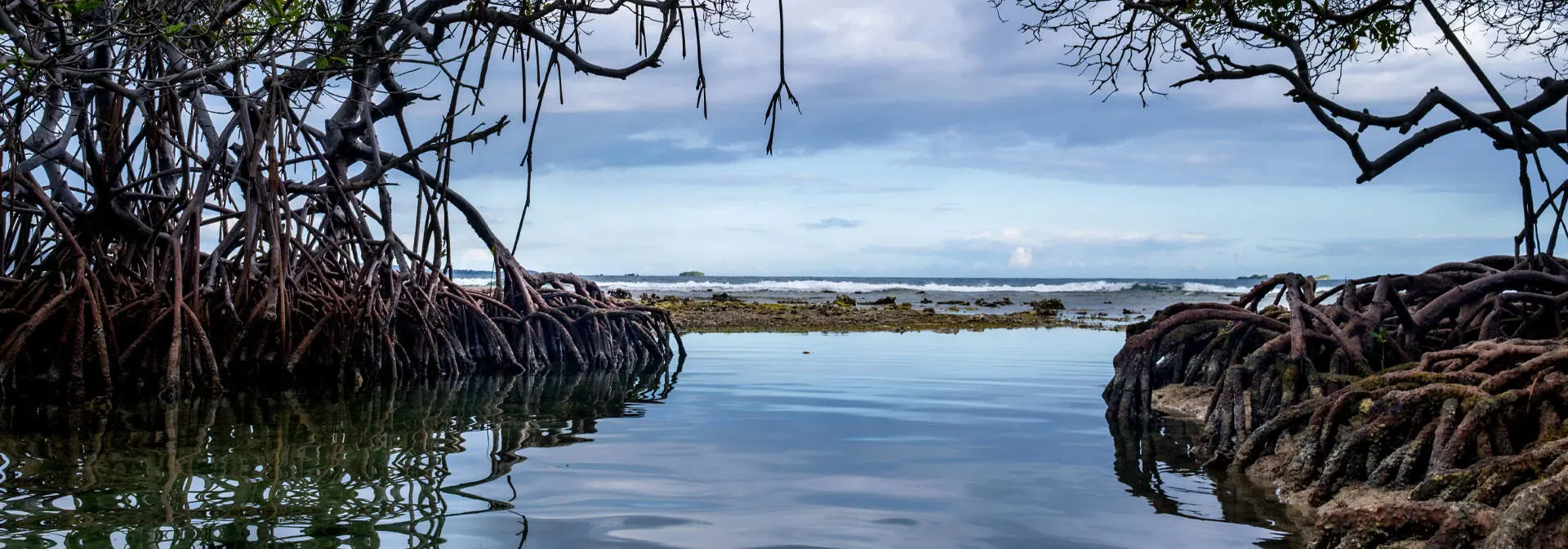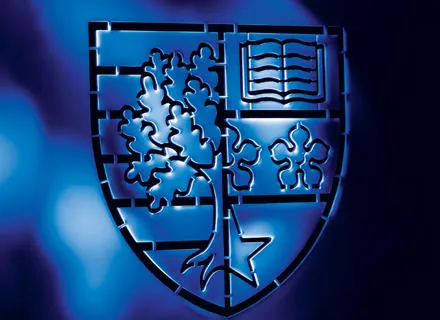Key information
This project will examine the impact of exposure of the amphipod Parhyale hawaiensis to environmentally relevant pollutant mixtures with different climate change-related physical drivers under a multi-stressor regime.
- Funding
- Fully funded (Students worldwide)
- School
- Energy, Geoscience, Infrastructure and Society
- Location
- Edinburgh
- Award
- PhD
- Delivery type
- Full-time
- Supervisor
- Mark G. J. Hartl
- Closing date
- Friday, 9 January 2026
- Duration
- 44 months
This project is part of the NERC-funded Centre for Doctoral Training, ECOWILD.
For more details, and for a full list of projects offered under this programme, please visit: https://ecowild.site.hw.ac.uk/
Project Description
The project will examine the impact of exposure of the amphipod Parhyale hawaiensis to environmentally relevant pollutant mixtures with different climate change-related physical drivers under a multi-stressor regime.
Climate change is driving changes in the aquatic environment, particularly transitional waters such as wetlands, estuaries and intertidal systems. These include rising temperatures, fluctuating salinities, pH shifts and dissolved oxygen concentrations. These physical drivers will affect the physico-chemical properties of chemical pollutants influencing their behaviour in the aquatic environment and their bioavailability for exposed organisms. With the exception of spill events or point source discharge, environmental contaminants often occur in concentrations unlikely to induce an acute response. The changing conditions, however, are likely to impact the ability of chronically exposed organisms to respond to resulting oxidative stress and the multi-stressor approach will uncover potentiating effects of combinations of stressors at otherwise benign concentrations.
The project will optimise for P. hawaiensis well-established oxidative stress biomarker endpoints, including catalase (CAT), Superoxide dismutase (SOD), Glutathione-S-Transferase (GST), Glutathione Peroxidase (GPx), Reduced Glutathione (GSH), oxidised Glutathione (GSSG), GSH:GSSG and Glutathione Reductase (GR) as well as a comparison of different DNA damage techniques (Comet assay vs Fast Micromethod). The antioxidant response to a range of environmental contaminants and contaminant mixtures – as characterized through ‘hypenated’ techniques, including gas chromatography mass spectrometry (GC/MS) – will be assessed under varied physical drivers. With the optimisation of these antioxidant biomarkers currently lacking for Parhyale, ecotoxicological biomarker baselines will be generated and compared to the response sensitivity of the species to pollution in a climate-driven multi-stressor environment.
What do you need to know:
This is a laboratory based experimental project with the aim to optimise a range of ecotoxicological biomarker assays for Parhyale hawaiensis,to assess the sensitivity of the species to multi-stressor exposure.
The student will have a biology background, preferably with hands-on laboratory, hypothesis generating and statistical analytical experience, as well as a passion for experimentation. Particularly desirable is experience in aquatic invertebrate husbandry and an understanding of carbonate chemistry.
Collectively, the proposed supervisory team is highly experienced in the fields of ecotoxicology and environmental impact, particularly in the use of Parhyale hawaiensis and ecotoxicological assessment together with biomarker design and optimisation across a range of organisms and aquatic environments, as well as analytical chemistry.
What expertise and skills will the student develop?
The student will be based at Heriot-Watt (HWU) and integrated in vibrant ecotoxicology teams at HWU and SAMS, and develop skills in experimental design, data management and statistical analysis, hands-on handling and husbandry of the established colonies of P. hawaiensis (HWU), ecotoxicological biomarker techniques (HWU and SAMS) and chemical analysis (HWU and BGS).
Why is the project novel?
The novelty of the project lies in understanding the responses of intertidal amphipods to multi-stressors, which are still quite unknown, particularly the stressor of acidification. Ocean acidification is well known, but intertidal fluctuations are relatively understudied, and the variance and extremes are totally different from open ocean acidification. Intertidal species are usually very well adapted to extreme conditions, but molecular and biochemical mechanisms of stress resilience under multi-stressor exposure are less understood.
What real-life challenge does it address?
We are currently in a biodiversity crisis often a result of multi-stressor exposure, which is set to intensify with the effects of progressing climate change. Optimising the proposed biomarker endpoints for Parhyale, which are far more sensitive than conventional endpoints such as mortality or behaviour, and more economic to achieve than gene expression and associated bioinformatics, could be further developed and future-proofed for use in conservation strategies and management of coastal systems, in order to better link ecotoxicology methods to real-world contaminant situations in a climate change-related multi-stressor context.
Timelines
The closing date for applications is 17:00 BST Friday 9 January 2026, and applicants must be available to start in October 2026.
Project supervisor
Lead Supervisor: Mark Hartl (Heriot Watt University)
Stakeholder Supervisor: Pierre Josso (BGS)
Co-Supervisor 1: Helena Reinardy (Scottish Association for Marine Science)
Co-Supervisor 2: Clayton Magill (Heriot Watt University)
Co-Supervisor 3: Ted Henry (Heriot Watt University)
For more information on how to apply, please visit the ECOWILD website.
Project specific enquiries: m.hartl@hw.ac.uk, General enquiries: ecowild@hw.ac.uk
Entry requirements
Candidate criteria
Eligibility
This project is available to home and overseas students. International candidates may apply but if successful, will need to demonstrate that they (or their supervisory team) have co-funding to cover the difference between home and international fees to be eligible. The difference in fees varies by programme. The current difference for 2025/26 academic year is approximately £20,000 per year.
Applicants typically should have a first or upper second-class honours degree or equivalent in an appropriate subject and preferably a relevant Masters’ qualification or similar experience.
We recognise that not every talented researcher will have had the same opportunities to advance their careers. We therefore will account for any particular circumstances that applicants disclose (e.g. parental leave, caring duties, part-time jobs to support studies, disabilities etc.) to ensure an inclusive and fair recruitment process.
Additional information
Essential Skills:
- Laboratory skills
- Data analysis
- Communication skills across broad range of stakeholders
English language requirements
If your first language is not English, we'll need to see evidence of your English language ability.
The minimum English language requirement for entry to this programme is IELTS 6.5 (or equivalent) with no score lower than 6.0.
If you do not have IELTS 6.5, we offer a range of English language courses to help you meet the English language requirement for this programme prior to commencing your studies.
For more information about your application and our English Language requirements, please see Section 10 of our page on English Language Requirements as part of your application.
Funding information
This is a full scholarship which will cover tuition fees for Home students and provide an annual stipend in line with UKRI recommended levels (currently £20,780 in 2025-26) for the 44 months duration of the project.
International candidates may apply but if successful, will need to demonstrate that they (or their supervisory team) have co-funding to cover the difference between home and international fees to be eligible. The difference in fees varies by programme. The current difference for 2025/26 academic year is approximately £20,000 per year.
Why Heriot-Watt
We're the top university in Scotland for graduate outcomes which means that more of our graduates are employed or in postgraduate education than any other institution in the country and we ranked 5th in the UK.
We're also rated number one in the UK for CEO or MD roles, meaning more of our graduates go on to become CEOs or MDs than any other university in the whole of the UK. On top of that, we have beautiful campuses, across the globe, so you'll get a truly international education. Our Edinburgh Campus is home to Oriam, Scotland's National Sports Performance Centre combined with plenty of wellbeing resources, prioritising fitness and mental health for all students. Our Global Research Institutes look at solving real world issues such as climate change and saving our oceans as well as working on the next medical technological breakthrough and the future of AI and robots.

